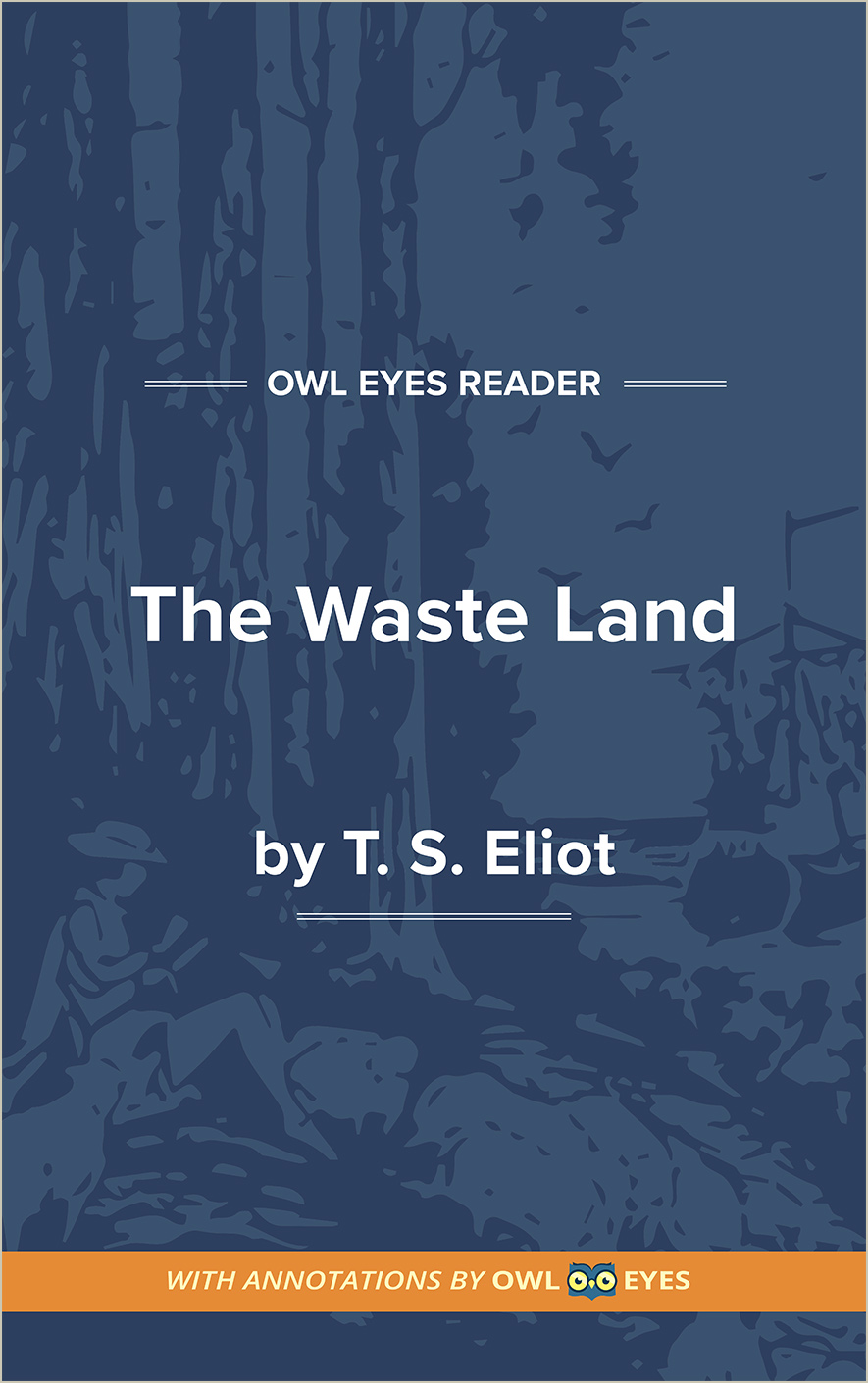Analysis Pages
Themes in The Waste Land
Themes Examples in The Waste Land:
Text of the Poem
🔒"Shantih shantih shantih..." See in text (Text of the Poem)
"Le Prince d’Aquitaine à la tour abolie ..." See in text (Text of the Poem)
"Quando fiam ceu chelidon—O swallow swallow ..." See in text (Text of the Poem)
"Poi s’ascose nel foco che gli affina ..." See in text (Text of the Poem)
"your heart would have responded Gaily, when invited, beating obedient To controlling hands..." See in text (Text of the Poem)
"Damyata: The boat responded ..." See in text (Text of the Poem)
"Dayadhvam: I have heard the key ..." See in text (Text of the Poem)
"Datta: what have we given? ..." See in text (Text of the Poem)
"—But who is that on the other side of you? ..." See in text (Text of the Poem)
"Here is no water but only rock..." See in text (Text of the Poem)
"He who was living is now dead We who were living are now dying..." See in text (Text of the Poem)
"Phlebas the Phoenician, a fortnight dead, Forgot the cry of gulls, and the deep sea swell And the profit and loss...." See in text (Text of the Poem)
"burning..." See in text (Text of the Poem)
"Twit twit twit Jug jug jug jug jug jug So rudely forc’d. Tereu..." See in text (Text of the Poem)
"Et O ces voix d’enfants, chantant dans la coupole! ..." See in text (Text of the Poem)
"the waters of Leman..." See in text (Text of the Poem)
"The nymphs are departed. And their friends, the loitering heirs of City directors; Departed, have left no addresses...." See in text (Text of the Poem)
"Well, that Sunday Albert was home, they had a hot gammon, And they asked me in to dinner, to get the beauty of it hot—..." See in text (Text of the Poem)
"Footsteps shuffled on the stair...." See in text (Text of the Poem)
"A Game of Chess..." See in text (Text of the Poem)
"“You! Hypocrite lecteur!—mon semblable,—mon frère!” ..." See in text (Text of the Poem)
"Is known to be the wisest woman in Europe, ..." See in text (Text of the Poem)
"Madame Sosostris, famous clairvoyante,..." See in text (Text of the Poem)
"Oed’ und leer das Meer...." See in text (Text of the Poem)
"I read, much of the night, and go south in the winter. ..." See in text (Text of the Poem)
"April is the cruellest month, breeding Lilacs out of the dead land, mixing Memory and desire, stirring Dull roots with spring rain. Winter kept us warm, covering Earth in forgetful snow, feeding A little life with dried tubers...." See in text (Text of the Poem)
"I had not thought death had undone so many...." See in text (Text of the Poem)
"With a wicked pack of cards..." See in text (Text of the Poem)

